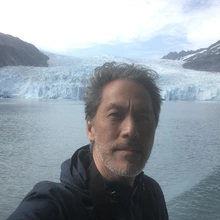From Inspiration to Endowment: The Gift Fueling Consciousness Studies at U of A

From his earliest memories, Professor Tom Bever was captivated by the way different kinds of knowledge fit together. As a boy at his family’s summer house, he would lie on the living room floor while his mother read aloud from Scientific American to his father. Tom listened with fascination as they explored the latest ideas in physics and biology — learning about cloud chambers, how ants communicate, and the interconnected nature of scientific discovery.
Building on his lifelong curiosity, Bever serves as Regents Professor of Linguistics and Philosophy where he pursues the interdisciplinary connections that have shaped his career. Last spring, the University of Arizona established the Thomas G. Bever and Stuart R. Hameroff Endowed Chair in Consciousness Studies, supported by a $2 million gift from retired Google software developer Eugene Jhong. Bever, who is the inaugural holder of the chair, also serves as director of the consciousness studies minor program.
In 2018, when Bever was associate director of the Center for Consciousness Studies, he began envisioning an undergraduate program in consciousness studies. The next year, Stuart Hameroff — currently a research professor with the Arizona Astrobiology Center — introduced Bever to Jhong, who heard Hameroff speak on Orch OR, a leading theory in consciousness studies he developed with Sir Roger Penrose.

Eugene Jhong
Jhong was interested in advancing education on consciousness for college students and financially supported the growth of the program from an experimental course to the creation of the minor in 2023.
For Jhong, the interdisciplinary approach was the main attraction.
“I feel like consciousness is such a wonderful topic because it blends so many possibilities — computer science, psychology, biology, religion,” Jhong said. “It’s what I would have wanted to study as an undergraduate.”
Blending Science, Philosophy, and Cognition
Bever, with courtesy appointments in psychology, neuroscience, cognitive science, second language acquisition and teaching, and the BIO5 Institute, was drawn to the University of Arizona for its strengths in biolinguistics, cognitive science, and collaborative research — yet he envisions an even more holistic approach.
“I would like the study of consciousness to exemplify the educational virtues of a field that is intrinsically interdisciplinary — touching several different areas,” Bever said.
The consciousness studies minor strengthens the university’s leadership, exploring fundamental questions about awareness, identity, and perception — questions with implications for ethics, mental health, and artificial intelligence.
The minor features two core classes, in addition to others drawing from different departments. The introductory course covers theories like Orch OR and Integrated Information Theory, the latter of which suggests that consciousness happens when the brain’s parts share and combine information. The more connected the brain is, the stronger our awareness.
During the 11th week, students examine “woo” — a playful term for unconventional ideas — through the lens of psychoanalyst Carl Jung, who was among the first to connect such concepts with scientific understanding of the brain and psyche.
The spring colloquium-style class, featuring faculty and visiting scholars from diverse fields such as American Indian Studies, neuroscience, and philosophy, encourages students to engage deeply by submitting questions in advance.
Each year, select students in the program may apply to attend the prestigious Science of Consciousness Conference, held alternately in Tucson and abroad. At the 2025 Barcelona gathering, chosen students presented their own talks and — thanks to Jhong’s support — had their travel fully funded, gaining important international experience.

Thomas Bever with the consciousness studies minor student speakers at the Science of Consciousness Conference 2024 in Tucson, Arizona.
Olga Bever
Preparing the Next Generation
Supporting student engagement, the Consciousness Studies Club, launched in fall 2024, hosts discussions on topics like religion, free will, and epistemology. The most recent event featured Noland Arbaugh, the world’s first Neuralink patient, who visited the U of A and spoke about controlling devices with his thoughts.
Collin Brown, a double major in neuroscience and cognitive science and molecular and cellular biology with a consciousness studies minor, credits the quiet of the pandemic for sparking deeper questions.
“During COVID, I’d spend time at my pond observing wildlife,” he reflected. “I started wondering: Are animals conscious? Are some organisms more conscious than others? Can creatures without brains be conscious? … Could AI be conscious?”
Brown added, “I honestly thought I wouldn’t find something like this program at the University of Arizona, or any university for that matter. There aren’t many universities that talk about topics related to consciousness.”
In July, the minor program officially joined the Department of Philosophy. A faculty steering committee now guides the program’s growth, focusing on outreach to undergraduates and helping develop a potential graduate program. Faculty across campus, especially those involved in the colloquium, have shown strong support.
“Many faculty are eager to present at the colloquium, bringing unique perspectives on topics ranging from Native American views to universal consciousness,” Bever said.
Bever hopes to expand consciousness studies to the graduate level, possibly through a future Ph.D. minor. Although the graduate program is still in development, the recent $2 million gift is a critical step, enabling deeper faculty involvement, more courses, and a sustainable future for the field on campus.
Thanks to Jhong’s generosity, consciousness studies is growing from a niche interest into a permanent part of the university’s academic landscape, just as the field gains momentum across higher education.
Bever envisions the university becoming a national leader in consciousness research, education, and public thought — a goal grounded in the spirit of curiosity that has always driven those interested in the field. As he puts it, scientific progress often begins by questioning the ordinary.
“Science is often based on realizing something that’s taken for granted every day is actually amazing.”
##
This story was included in the fall 2025 Developments newsletter.

